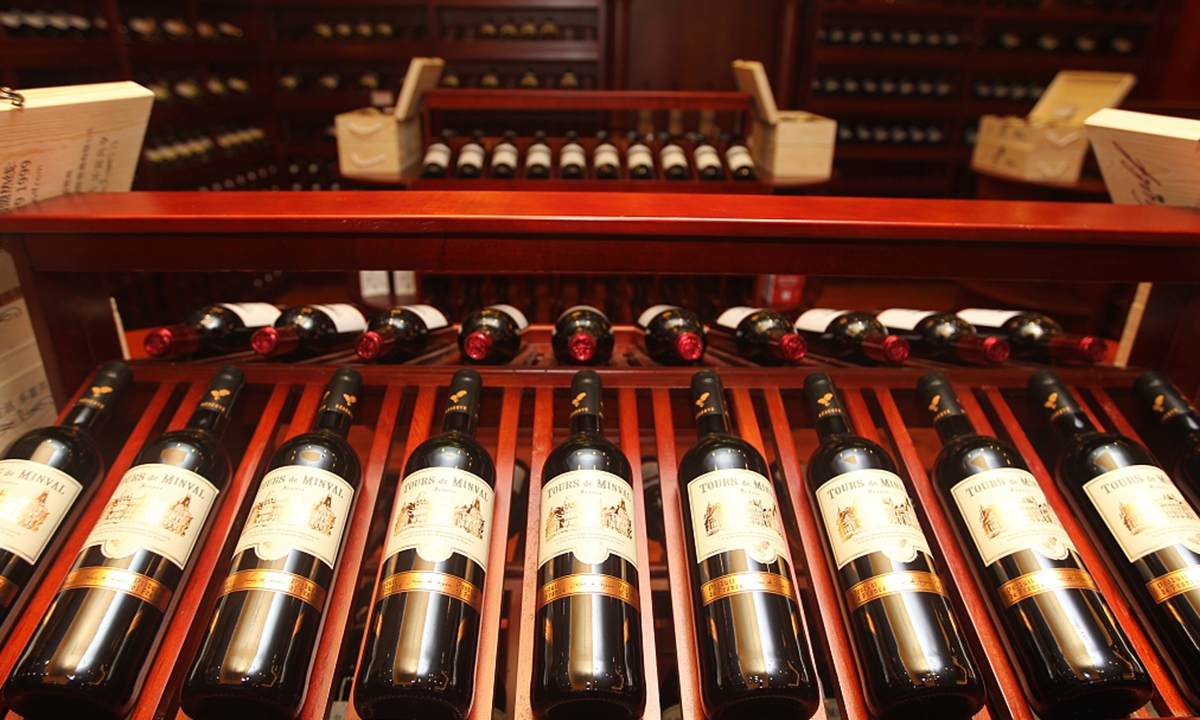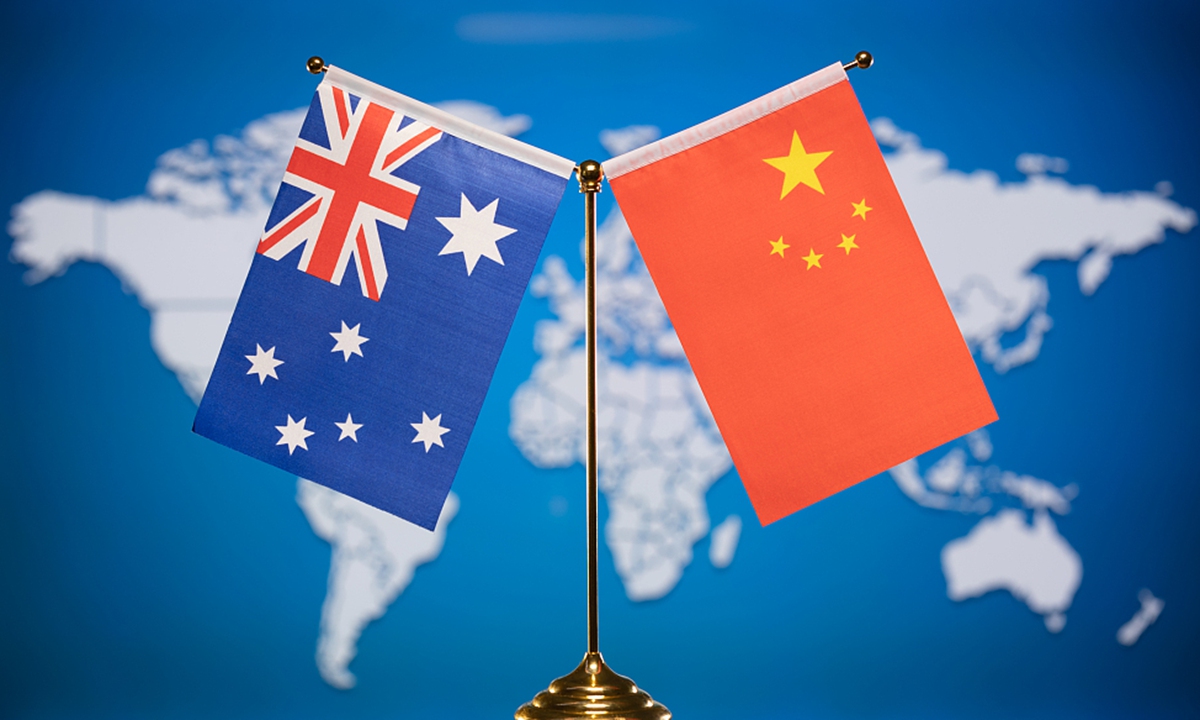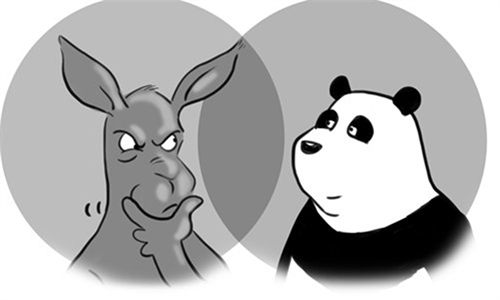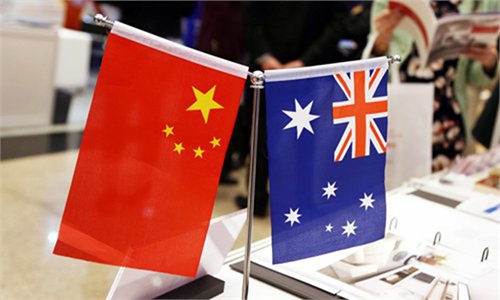Boycott calls over Chinese-owned firms show dangerous trend, could lead to double-digit fall in Australian economy: experts

Photo:VCG
Without an official document record or support, a list of 41 alleged Australian wineries has been posted on Facebook by an account named "Vino e Amigos." The post suggested that these companies are owned by Chinese funds and sparked a new wave of boycott calls over Chinese products and investments, Australia's news site new.com.au reported on Thursday.
The boycott calls followed the head of Australia's far-right party One Nation Pauline Hanson's plea last week for Australians to boycott Chinese products this Christmas.

China Australia. Photo: VCG
There are already a raft of discriminatory policies and arbitrary rules in Australia to thwart and reject investment and acquisition proposals from Chinese businesses. The current dangerous trend started by boycott calls could lead to disastrous outcomes for the Australian economy, experts said.
"The reckless call to boycott Chinese products or Chinese-owned businesses is sheer madness. Nowadays Chinese businesses and investors are finding an increasingly hostile business atmosphere in Australia," Chen Hong, professor and director of the Australian Studies Centre, East China Normal University, told the Global Times on Saturday.
Those who are instigating the boycott should bear in mind that such moves will in turn seriously jeopardize Australia's economy hit hard by COVID-19, Chen said, predicting that if Australia indulges in such dangerous trends to further poison the already twisted China-Australia trade and investment, a double-digit fall could ensue damaging its economy in 2021.
Amid political hostilities stemming from Canberra's reckless approach in dealing with China, bilateral November trade data from the General Administration of Customs of China (GAC) has marked the second consecutive month of decline in Australian exports to China. And the increasingly hostile environment in Australia has caused new concern for investment in the country.
"China's investment in Australia has dropped from 13 billion Australian dollars a year at the peak to over 3 billion at present," Yu Lei, chief research fellow at the research center for Pacific island countries of Liaocheng University in East China's Shandong Province, told the Global Times on Saturday.
China does not intend to engage itself in a trade conflict with Australia and hasn't politicized economic and business activities, but Australia has been weaponizing investment policies and market access on ideological grounds. Such immaturity simply disregards possible costs and the subsequent aftermath, according to experts.
Iron ore, the largest commodity transaction in bilateral trade, has not been involved in the trade spat, which is the largest source of foreign exchange earnings from Australia's exports, Yu said.
"If people like Pauline Hanson want to play with fire, it would only boomerang to injure Australia's own interests," Chen said.



